Battles of history with Patrick Goodwin
Battle at Susim 554 BC
Who is Patrick Goodwin?
Spoiler Alert, click show to read:
Goodwin: The persian empire is often called the first world empire. But like many empire after the Persians, it was not build in a day. When King Kûrus became king of Persia in 559 BC Persia was but a small nation of hillmen. But in 554 BC his army had tripled.
Babylonian king Nabu-na'id on the other hand had a large empire that existed for many centuries. The Neo-babylionians have battled against the Hatti in Anatolia and the Egyptians for decades. His troops are experienced soldiers. But the king in Babylon also has troubles with a strong clergy.
IN 558 BC king Kûrus obtained the city of Susim, which Nabu-na'id saw as part of his empire.
[The scene is the Babylonian palace. King Nabu-na'id is sitting on his thrown listening to reports from his empire.]
[A soldier enters the room, carrying his spear, he falls down and kisses the kings feet.]
King Nabu-na'id: Enough of this soldier. What brings you here?
Soldier: My lord and king. The council of Susim has surrendered to the Persians without a fight.
King Nabu-na'id: What? This is preposterous. The Persians? They are primitive Hillmen. How dare they to conquer our brothers and sisters and put them to slavery, robbing them of house and goods?
King Nabu-na'id was preparing for war.Even if the people from Susim haven't belonged to the Neo-Babylonian empire for decades, the king saw himself provoked to war. Because of difficulties with other tribes in the south of his empire it took the king 3 years to assemble an army against Persia, but he was sure that his attack on Susim would not be anticipated by the Persian king. The sneak attack should be a fast and decisive victory that would drive the Persian back to their hills.
Nabu-na'id sent a minor general called Shadrach. It seems that Nabu-na'id was so sure of his victory that he would not sent his best men who were needed on different borders against more experienced nations.
Nabu-na'id sent a minor general called Shadrach. It seems that Nabu-na'id was so sure of his victory that he would not sent his best men who were needed on different borders against more experienced nations.
[The scene is the Babylonian army marching on a road. Shadrach, a young man with a curly beard is riding a horse.]
Shadrach [talking to an officer]: This Persian king, he is supposed to be in the city, with only limited troops. Our plan is to cut off all roads in and out to the city and force a surrender to him. If I bring a chained king to Nabu-na'id he will reward me greatly with gold and women.
[At the royal chambers of Susim. The decoration is simple. The Persian king can be seen talking to his advisors. From the window in the east the rising of the sun can be seen]
Kûrus
King Kûrus: ...so we will have to spent enough money for the quarry. We need the stones to expand our harbor here.
[A man runs into the chambers without breath]
Man: My King! My king! There are troops outside the walls. They are everywhere.
King Kûrus: What? Are you out of your mind young man? What are you talking about?
Man: It's the Babyolonians. I saw them with my eyes, the have troops at each gate blocking us out.
King Kûrus: How did they get past our borders? Why did no one notice a whole damn army get so far? By Ahura Mazda! Does Ariyamna know of this?
Neither Shadrach nor Nabu-na'id actually knew that Kûrus had most of his army gathered near Susim. We do not know what exactly Kûrus was planing. Since Kûrus was surprised by the Babylonian attacks it has been argued among modern historians wether he wanted to attack his Median neighbors or if he actually knew an attack was immanent.
Either way, the army outside of Susim was comanded Ariyamna, a minor general who watched of the garrison. He started to move his troops southwards to meet the enemy.
[It is night, Shadrach is sitting in his tent, studying a simple map of the area.]
Shadrach: So a large army is moving from the north to meet us in battle? Good. But we cannot face both Kûrus and the main body of his force. We need to deal with the body of the snake first and then squish the snakes head.
So Shadrach decided to move his forces over the nearby Tigris during the night. His plan was a tricky one. He wanted to move his troops unnoticed by the King in the city and face the main force of Ariyamna without having to fight the combat experienced Kûrus. The next morning Ariyamna picked up Shadrach trail and sent notice to his King. He was sure to meet his foe in battle. But unfortunately a large storm which was moving in their direction caught up the scout and he could not deliver his massage.
Ariyamna [standing among his man]: Looks like the king is not coming. On the other hand, my archers are in range and they could let living hell rain down on the enemy. It would be unwise not to attack. The enemy thinks the river protects him, but actually it is his death trap because he loses so much mobility.
Ariyamna deployed his troops in the standard Persian formation. First row mixed light infantry men, second and third row archers. His limited cavalery he hid out of sight from the enemy.
[The soldiers are standing in orderly fashion, watching the enemy across the river.]
Fat soldier: "So what do you think off this? We have been standing here for hours.
Young soldier: "What do I know? This is the first time I am in a battle. I'm just a farmer and when this is over I'm going home to my family again?"
Officer [going his round in front of the soldiers: "Remember to pull your head in when the archers start shooting, keep to the senior soldier and you will make it. Auramazdā' is with us today." [Moving away again]
Fat soldier: "So we are going to do this! Are really going to do this.
Young soldier: "You are really enjoying this, aren't you?"
Fat soldier: "Yeah sure, what should happen? I'll just go over there and stick my goddamn spear in his head. It's THAT simple."
Young soldier: "How can you be so sure, have you actually ever ..."
[A loud sound of a goat horn can be heard]
Master of the archers: "Allright man. Let those overly proud Babylonians show what simple hill man are actually made of. Steeeep up. Aiiiiim. [Pauses] - Shoot - go."
For the next minutes the archers fill the sky with arrows. The Babylonians, used to normal hand to hand infantry combat are not prepared for anything like that. The skilled Persian archers kill many soldiers within the first minutes.
Shadrach gets nervous. He orders to move his man to the north to use a small passage through the water to cross the river. But Ariyamna is aware of his plan and sends his secret weapon to battle. Something the enemy has no idea about. He gives the secret order. Out of nowhere the hidden cavalery rushes over the city. It is that moment the sky darkens and a quick but unusual heavy rain drops from the sky. The Babylonians think off this as a bad omen.
The fast moving Persian riders has nearly no armor and only light weapons which make them incredibly fast. The Babylonian did not expect anything like that.The first line of defense by the bridge gets overrun.
Cavalry officer [screaming through the heavy rain]:
"Where is Hâyanis with the second group. We need the now. Sound the signal. We need more riders. Go!"
The second group is crossing the bridge and are in a dangerous situation being cut off by the Babylonian infantry. But Shadrach is engaged in hand to hand combat and unable to give proper commands.
The Persian riders harass the enemies with light spears. Always moving, so that the enemy is being tired down completely. Shadrach is sounding his horn to regroup, his troops start moving back. The riders realize their chance and start chasing the retreating enemy.
Dirt and dust are all around the fighting soldiers. It is loud, and there is blood everywhere. And there are still arrows flying killing soldiers. The moral of the Babylonian troops is about to break.
But then it happens! Shadrach is torn down from his horse and surrounded by Persian riders. The spearmen give their last breath to defend their commander, but all in vain. The riders charge with such a power from both sides that the Babylonians get crushed and Shadrach trampled to death.
In the meanwhile the main body of the Persian army has split in two and crossed both river crossings. The enemy, without their leader are unable to set up defenses at two points. Chaos breaks out in the Babylonian ranks.
The Persians, who are aware that the enemy is wavering, start a full scale charge.
The momentum is in the hand of the Persians. The Babylonian soldiers are unable to hold the line.
Realizing that the Persians are all around them, they loose heart and sound the retreat. But where to run now?
The remaining soldiers run from the Persians only to find another wave of Persians coming in their direction. Without anywhere to run, the remaining Persian soldiers get completely slaughtered.
The Babylonian army is utterly destroyed.Ariyamna is victorious.
[King Kûrus arrives on the battlefield. It has already evening and the army tents are built up. He enters a big tent.]
Ariyamna: "My king! You have arrived."
[Runs to the king and falls down on his knees]
King Kûrus: "My good Ariyamna. Today you don't bow to no one. You have utterly destroyed the sneaky Babylonians. No today you don't bow to the king but the king to his servant."
Although the historic sources are not accurate with the numbers concerning the battle, modern historians have calculated a possible list of casualties.
Persians:This victory was an important one for the Persians. They have not only defeated a professional army, but showed superiority in warfare. The battle at Susim enabled further expansions for the Persians. Truly, this was the first important step to build the first worlds empire.
Soldiers: 21.000 - Lost: 2.000
Babylonians:
Soldiers: 19.000 - Lost: 16.000
And what happened with Ariyamna? Although the sources do not talk about him, possible because the segment is lost, it is safe to say that he became an important young general to Kûrus staff.




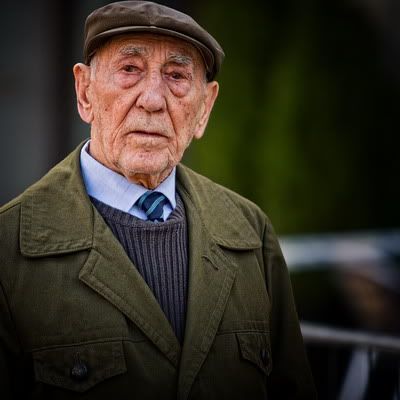



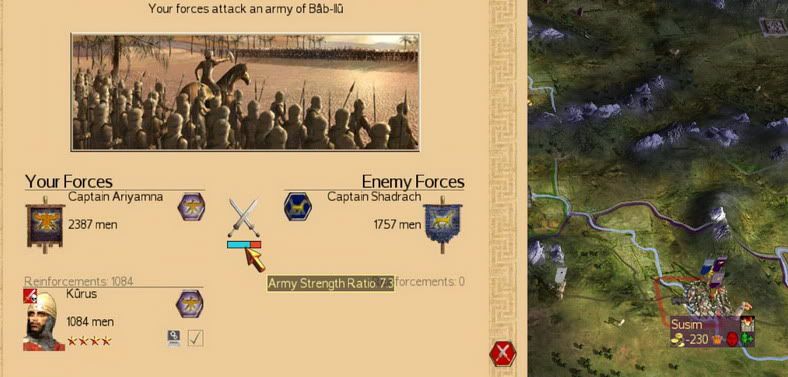
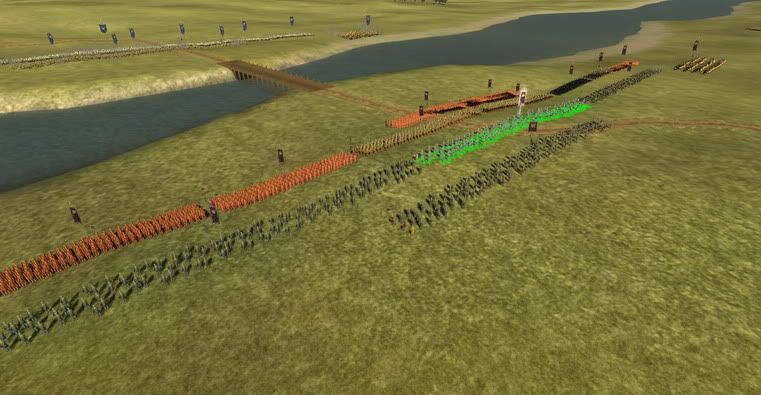
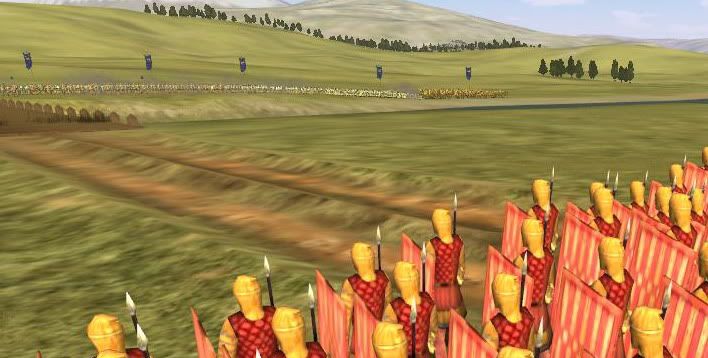
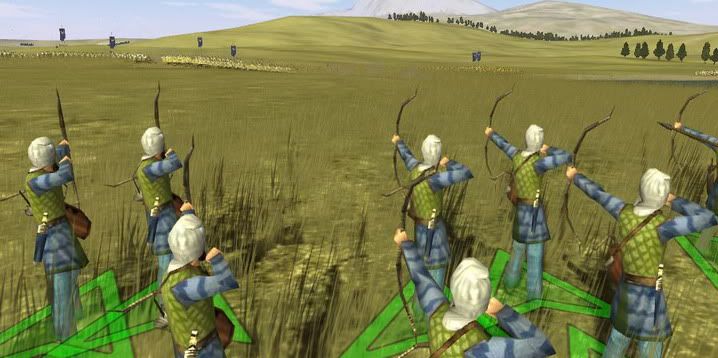
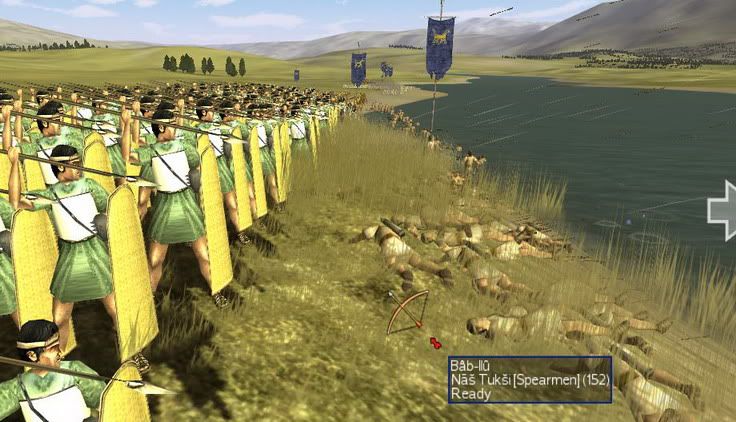
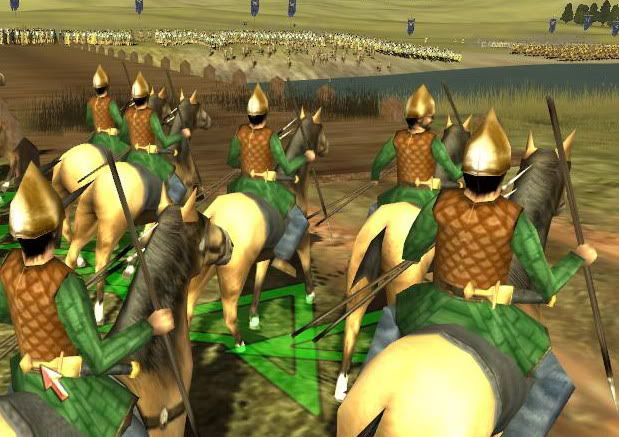
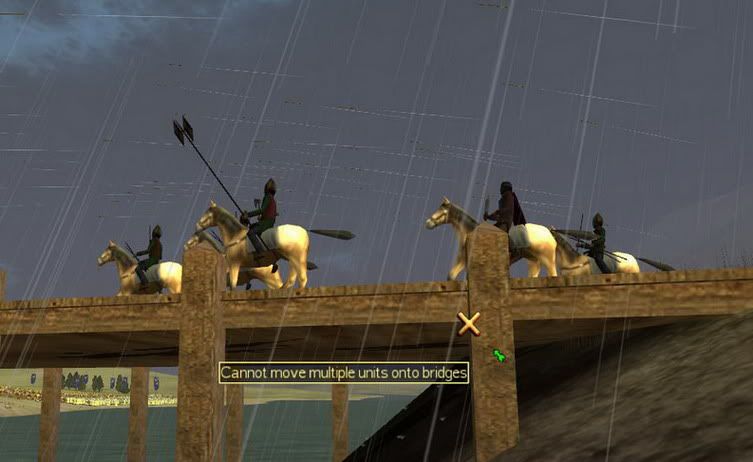
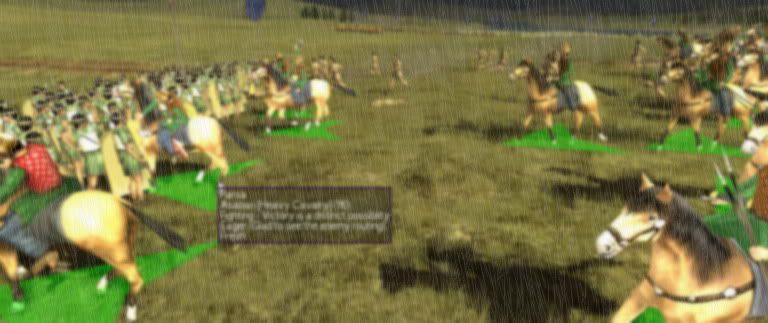
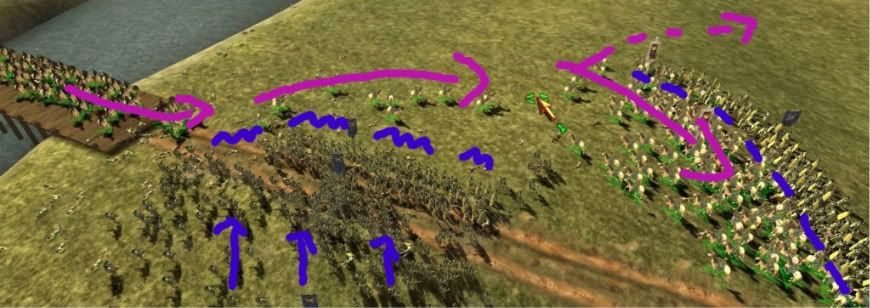
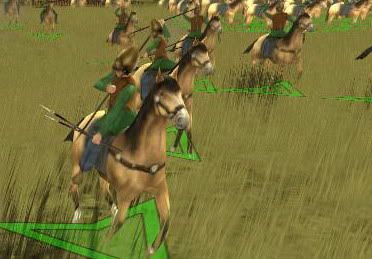
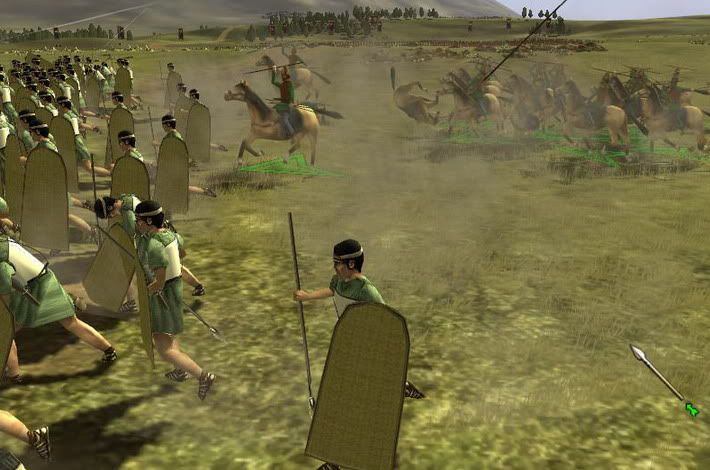
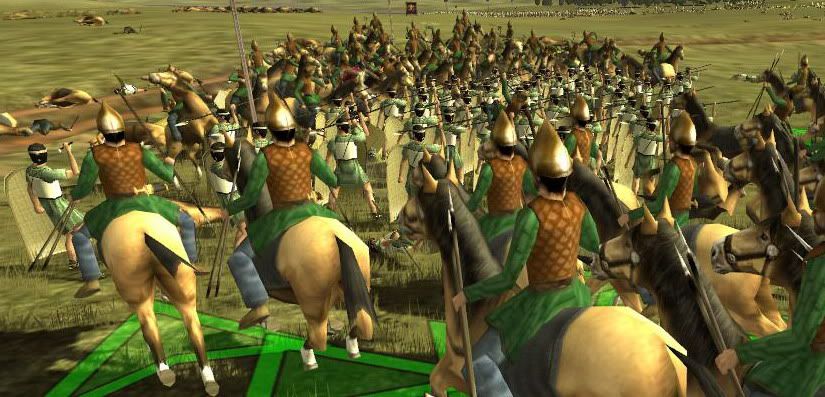
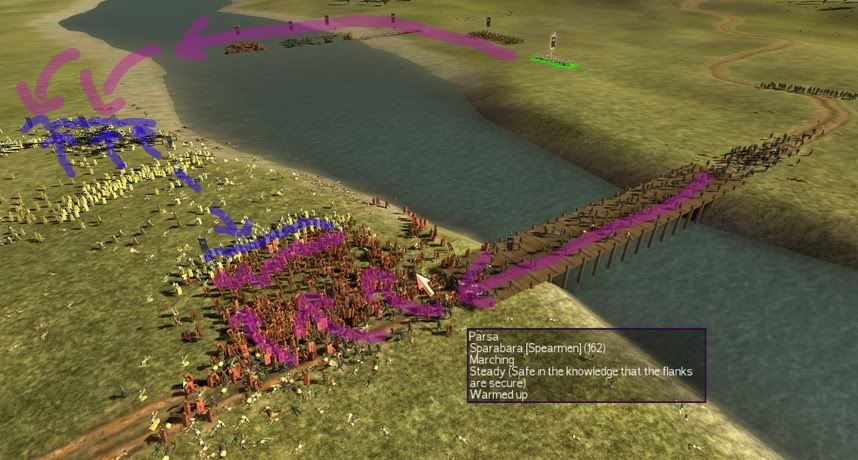

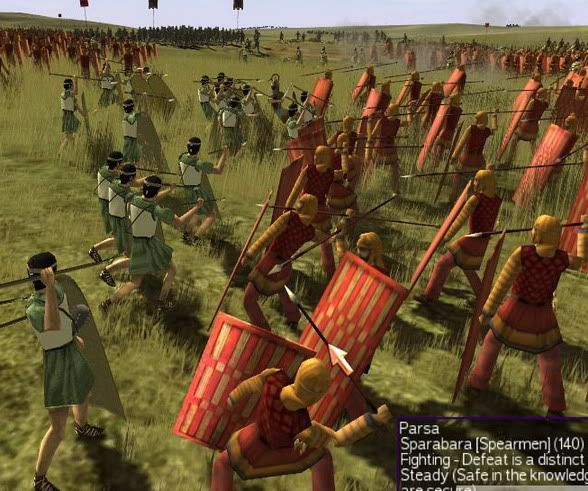
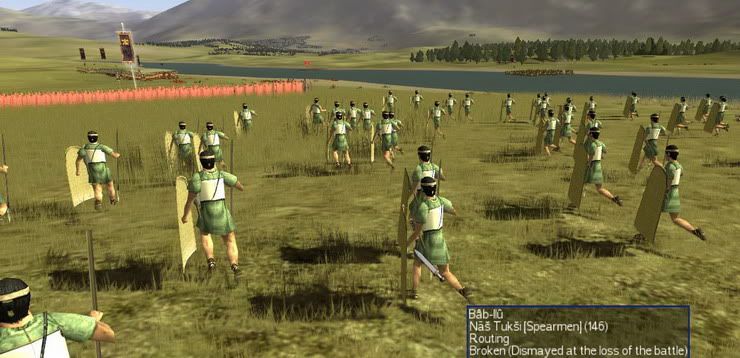
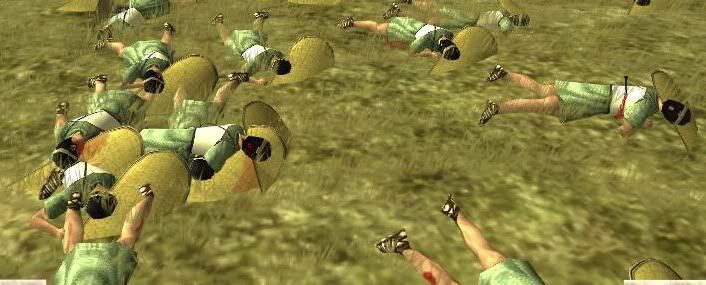


 Reply With Quote
Reply With Quote
Bookmarks